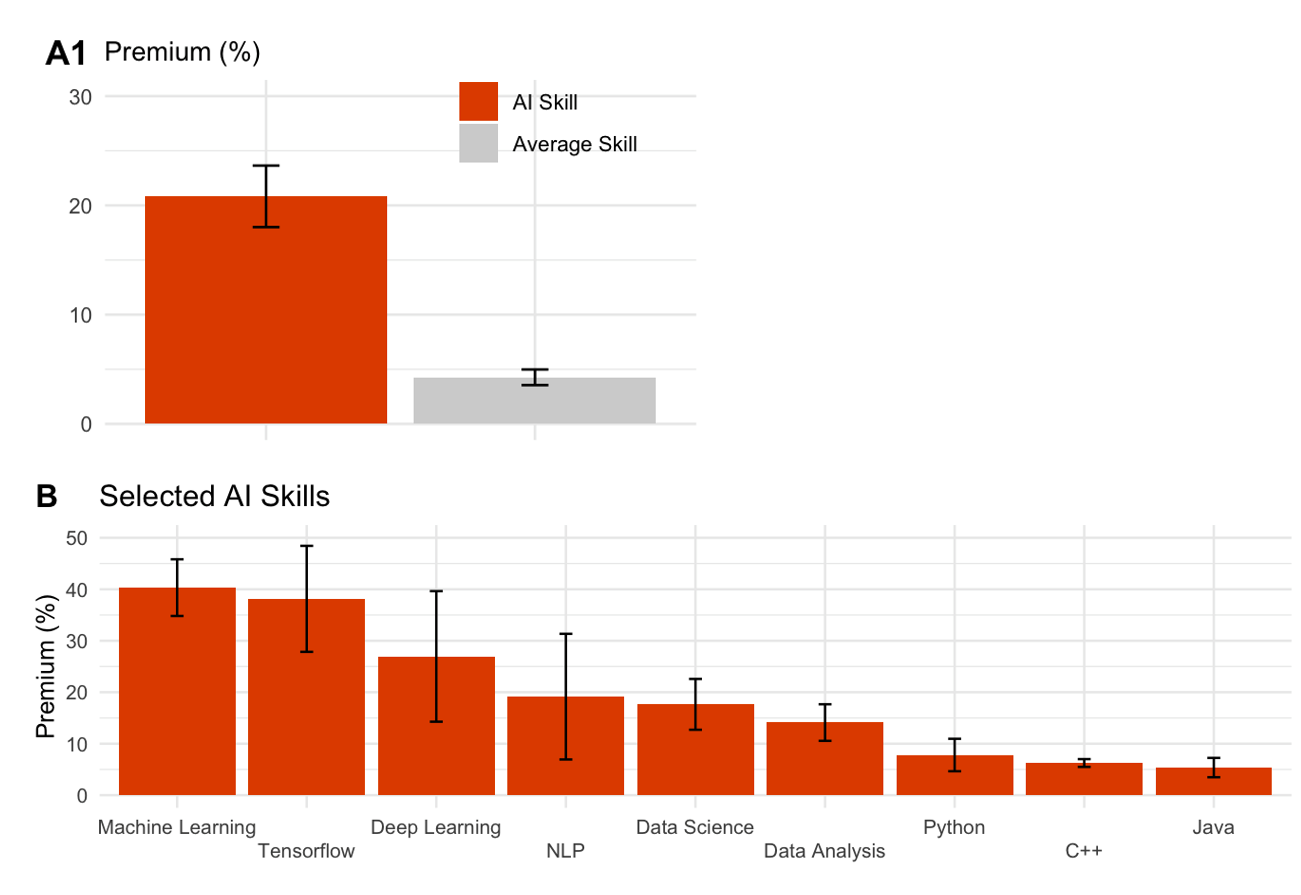Weekly Impact Brief (2023.Nov.05)
The importance of the individual in teams, upskilling, and talent development, with tips for leaders and first time managers.
Note: We are in private beta. There are rough edges; this Brief will evolve in the coming weeks before we launch more broadly. We value your feedback! To share your input, click here.
Read time: 3.5 min
Welcome
It’s great to have you here!
This Brief offers leaders quick, fact-driven insights on trending articles released in the last week around leadership, innovation, and more. These are curated from top sources, such as McKinsey, Harvard, and many others, looking at elements of the Impactful Framework.
In case you missed the last Impact Briefs, here are the links for the previous two:
Thought Starter
Last week, we covered the element of “Understanding”; this week, we cover “Attention”. Attention management is key to boosting productivity and successfully reaching desired objectives. It centres around the strategic organisation of time, focus, and resources to optimise the fulfilment of tasks and goals.
Highlights
MIT Sloan Management Review: There Actually Is An ‘I’ In Team
London School of Economics and Political Science: Do We Have A Chance Against AI In The Skills Race?
McKinsey & Company: ‘Never Waste A Crisis’: StarHub’s CEO On Leading Transformative Change
Gartner: Three Steps To Support First Time Managers
Gallup: Leading With Strengths
[Feature] Boston Consulting Group: The Future of Work Revolves Around Talent
Impact Pulse
Each week, we review 200+ articles from 50+ premier academic and consulting firm sources to highlight a few “essentials” below.
There Actually Is An ‘I’ In Team
Big Idea: The sequence in which changes are made matters significantly. Starting with individual reskilling and then transitioning to team collaboration ensures a smoother adaptation process.
Quick Quote(s): "Our research shows that there may be benefits to making individual reskilling a priority… Successful teaming requires skills at two different levels: Team members need to become proficient in their own tasks, and they need to work well together… Collective mastery can often be built only on individual skills. To best deal with fundamental change, individual skill development should occur first.”
"The teams that had initially focused on individual reskilling performed 12% better than the teams that, right off the bat, had focused on improving collective coordination."
Do We Have A Chance Against AI In The Skills Race?
Big Idea: Understanding the complementarity of skills, especially in AI, is essential for workers and firms to adapt and thrive in the rapidly evolving landscape of work.
Quick Quote(s): “Technological advancements…create a pressing need for specific skills… Complementarity is the key to determining the value of a skill. Complementarity refers to how well a skill complements and enhances other skills. Most jobs require a combination of skills. Therefore, the value of a skill can only be assessed in the context of its complementary skills… As workers adapt to new technologies, they incrementally add new skills to their existing skill sets. Maximising complementarity between old and new skills is crucial for economic efficiency in this process… As a particular skill’s set of complementary skills becomes more diverse, the more strategic options a worker has for reskilling. This increases their resilience against unforeseen technological changes in the future.”
‘Never Waste A Crisis’: StarHub’s CEO On Leading Transformative Change
Big Idea: Adopt people-focused transformation practices to drive relentless innovation and resilience towards change and challenges while promoting sustainability, teamwork and personal well-being.
Quick Quote(s): “Great companies are forged by going through fire; you have to learn and adjust as a team. Each challenging situation is an opportunity to achieve incremental improvements. Never let a good crisis go to waste… And people matter. Like football, this is a one-on-one game, but it’s also a team game in which every player matters… CEOs need to learn from everything that goes right and, even more importantly, everything that goes wrong.”
Three Steps To Support First Time Managers
Big Idea: To support first time managers: redesign manager roles to be more focused, initiate early managerial training even before promotion, and offer further developmental support in critical areas.
Quick Quote(s): "Forty percent of managers with two years or less of experience struggle to support their team…First time managers, especially, benefit from a more focused role as they often struggle to step away from individual contributor work… There are three development areas that are crucial for first time managers to master to lead successful teams: Creating an environment of trust and psychological safety, Setting achievable work goals, Providing effective feedback."
Leading With Strengths
Big Idea: Promote leadership that prioritizes key decision-making, inspiring others, clear communication and deliberate, persistent change. Build a strength-focused company culture that fosters resilience.
Quick Quote(s): "Focusing on strengths is a better use of your energy than trying to focus on people's weaknesses and fix people… I'm always ready to do anything for the company to make it better, and I'll take ideas from anybody from anywhere that could work inside our company… It's better to be a little slower, a little bit more deliberative, persistent, but have the change stick."
Featured Summary
Below are our featured insights for the week: a BCG article expounding the integral value of attracting, building and retaining talent and promoting a people-centric workplace.
The Future of Work Revolves Around Talent
Big Idea: Apply people-focused strategies like developing generative leaders, providing continuous learning, and improving talent management and workplace flexibility to address work model effectiveness and employee needs.
Quick Quote(s): “Attracting and retaining employees are among the top motivators for organizations of all types to support workplace initiatives. Leaders consider these reasons even more important than improving productivity, keeping up with competitors, and increasing cost effectiveness.”
Parting Thoughts
Thank you for spending your precious time with us.
We are still in early “beta” mode for the coming weeks. If you find this Brief useful, please forward it now!
Please feel free to reach out with any thoughts or questions that today’s insights might have sparked.
Impactfully yours,
Ali Monadjem (LinkedIn profile)
For The Impactful Executive Team
P.S. If you want to sign up for The Impactful Executive private email list or share it with a friend or colleague, you can find us here.









